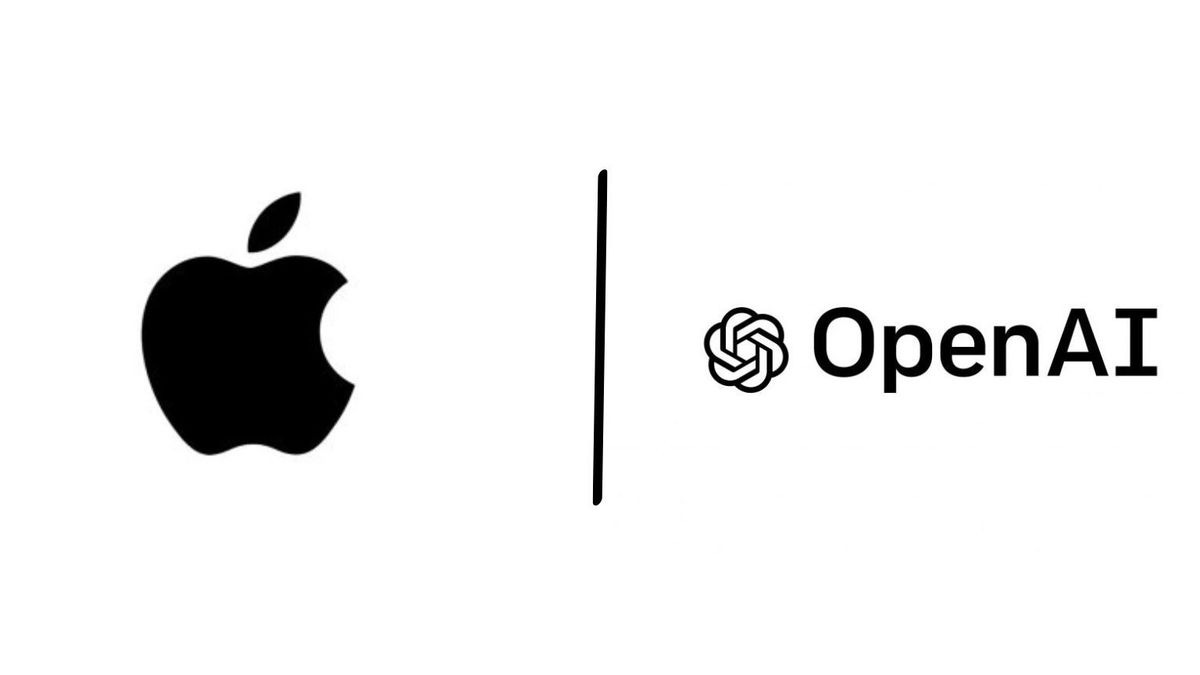Deep dive: Apple x OpenAI
Will Apple invest in OpenAI?
We are once again deep diving markets. After a bit of a slow news cycle I finally have an interesting market to analyze. And this time I am outside of the usual politics / geopolitics landscape. Not gonna lie, politics and surrounding drama sometimes gets tiring, so I am glad that there is an interesting financial market to write about. After all I work in finance as my day job and I did M&A, JVs, Partnerships and other structures so I have something to say in this topic.
Today’s deep dive will focus on the big game - we are not talking about acquiring some small HVAC company in the Mid-West with nice EBITDA margin. This is two of the hottest companies on earth mulling over closer cooperation. As reported by the WSJ, Apple is considering investing into OpenAI during the next fundraising round.
This is big and unusual news. Luckily Polymarket delivered on this (I am still waiting on the Alphabet DOJ split market and I know you read me ;)) and you can bet on Apple investing in OpenAI by the end of 2024:
At the time of writing the odds that Apple will invest in OpenAI are 70/30. Research mode is on - in this deep dive we will go through it all:
short intro on M&A,
Apple investing history,
Apple approach to M&A,
Apple x OpenAI partnership,
typical rationale for acquiring a stake in other company,
pros and cons of Apple acquiring a stake,
OpenAI investors,
OpenAI perspective - equity story,
final verdict and value odds.
I am really excited for this piece. I am doing the research as I am writing so at this moment I am still not sure if the odds are right, but my gut feel tells me that there is really good value to be extracted from this market even if the volumes are a bit small. I will try to avoid financial jargon and make it as understandable as I can so you can benefit from this research not only for this market, but also for any subsequent M&A type markets.
Let’s dive into the topic as I expect this article to be of the longer type. You will not get alpha by reading X. I hope you know this by now. You need actual research, no one will share true alpha for free. And it will not be in a 30 seconds TikTok video either. So if you are serious about profiting from prediction markets then subscribe and tune in for the deep dive.
Mergers & Acquisitions
To properly understand and approximate the odds for Apple investing in OpenAI, you need to first understand what is M&A and why companies actually do M&A. In simple words, M&A is a bulk statement for every action in which one company (or individual) buys another company. To give you recent examples:
in 2022 Microsoft bought Activision Blizzard for $68.7 billion,
in 2022 Elon Musk bought Twitter for $44 billion.
Individuals buying companies is rare, but Twitter example is well known so I put it there. While Elon Musk bought Twitter for personal reasons mostly, companies buy another companies for strategic reasons. Generally M&A is mostly perceived as inorganic growth strategy, inorganic meaning that the growth comes from outside the company vs from eg. market expansion. Easy, you can also call it horizontal growth - it mostly involves buying out smaller competition in markets you are present in (or specialized competition in some high-tech niche) or buying competition in markets you are trying to enter. Sometimes you may also buy a company in a new business line you are trying to enter. Usually this business line complements the current product offering. Example could be Uber buying Lime, a shared mobility (scooter) company to complement ride-hailing and food delivery.
Second growth (as you may have deduced) is vertical growth. As a company you may want to buy your strategic suppliers to ensure that they will not increase prices or move to your competition. Additionally, a vertical purchase might give you synergies. Example could be Coca-Cola - they have their own distribution network and instead of building it from scratch, Coca-Cola could have just bought some logistics company and integrate it (did not check if that was really the case, but high chances it was). Here you do not necessarily need to buy a majority stake. You could as well buy a minority stake and have some protection in shareholders agreement in terms of strategic decisions, etc. It really depends on the end goal.
Keep reading with a 7-day free trial
Subscribe to PROPHET NOTES to keep reading this post and get 7 days of free access to the full post archives.



